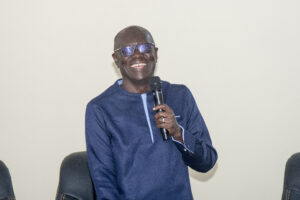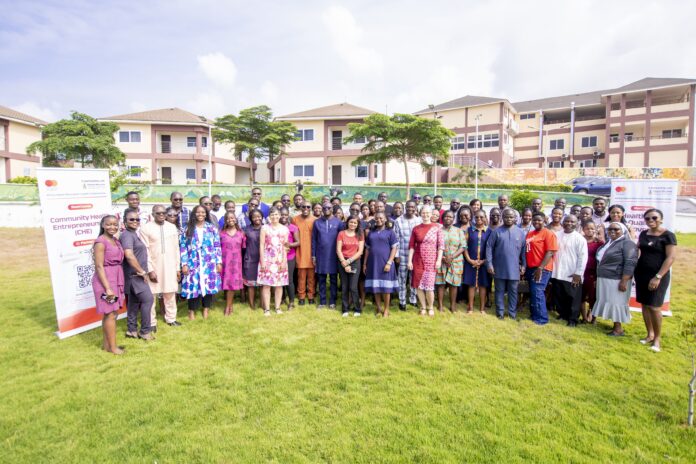A health expert from the School of Medical Science, University of Cape Coast, Dr. Aaron Offei has drawn attention to the critical role of patient experience in healthcare improvement.
He underscored the importance of paying attention to patient feedback in shaping up healthcare delivery.
“Quality healthcare improvement demands a focus on patient-experience, of which Ghanaians have a lot of stories about! Several stories on how they have been treated in our facilities. Indeed, each person who walks through the doors of our hospitals or clinics comes with unique needs, fears, and hopes,” he said.
By listening attentively to their voices, we can continue to tailor our care plans not just to be medically effective, but also compassionate and respectful of individual dignity, he added.

Dr. Offei was speaking at the opening ceremony of Quality Healthcare Improvement module 2 workshop by the Africa Higher Education Health Collaborative, KNUST in partnership with Mastercard Foundation at Moree, Cape Coast.
The twenty health professional beneficiaries have already completed module 1 of the short course in May this year.
The course, which is in partnership with the Kwame Nkrumah University of Science and Technology and the University of Toronto, is under the auspices of the Health Employment pillar of the collaborative led by Dr. Kofi Akohene Mensah.
It seeks to equip health personnel with the requisite strength and capacity to meet the growing demand for primary healthcare in the health centre.
Dr. Offei again emphasized that the current module uses an evidence-based approach in improving quality healthcare.
“This module will offer you another opportunity to learn about using a holistic approach in improving quality healthcare in your facilities. That is embracing evidence-based practices that are grounded in research and experience, ensuring that our medical decisions are not only effective but also informed by the latest advancements in science. It also means fostering a culture of continuous improvement within our healthcare institutions, where feedback loops and data-driven insights guide us towards better outcomes for patients,” he’s optimistic.
Principal Investigator of the project and Pro Vice-chancellor of KNUST, Prof. Ellis Owusu-Dabo encouraged participants to embrace ethical use of emerging technologies to advance Ghana’s healthcare delivery.
“I want to reiterate that in our pursuit of quality healthcare, improvement and health entrepreneurship, technology plays a pivotal role. From telemedicine to AI-driven diagnostics to technological interventions and advancements, the power to revolutionize is here with us and we should bring it along. However, let us remember that technology is a tool and that means to an end, and it means that it can both serve a purpose and also at the same time destroy.
“The true measure of success lies in how effectively we harness these tools to enhance the human touch that we have acquired in medicine, ensuring that our patients receive their humanity and dignity,” he said.
Pillar lead, Dr. Kofi Akohene Mensah asked the participants to tap into the facilitator’s experience to enrich their knowledge.
“We expect that you go back and make an impact and be an agent of change,” he said.


